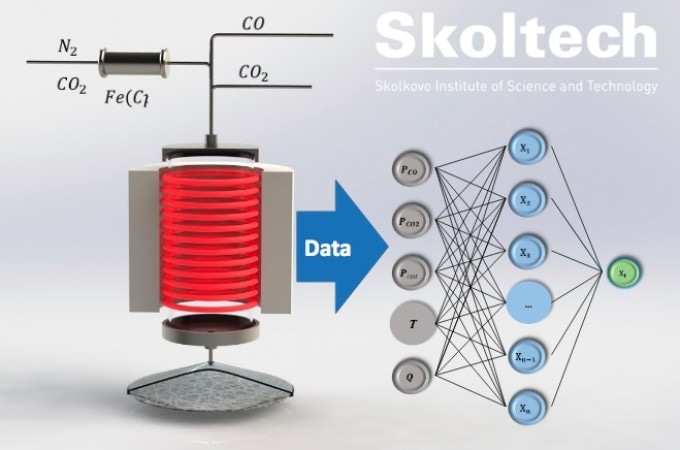Aug 12 2019
Researchers from Laboratory of Nanomaterials, Skoltech, have come up with a neural-network-based technique for tracking the development of carbon nanotube, leading to a new generation of advanced electronic devices. The findings have been reported in Carbon.
 (Credit: Laboratory of Nanomaterials, Skoltech)
(Credit: Laboratory of Nanomaterials, Skoltech)
Carbon nanotube-based thin films find potential applications in advanced optoelectronics, medicine, and energy. However, since their manufacturing process involves strict standardization requirements and close monitoring, they may not be commercially available in the near future.
A major hindrance to unlocking the vast potential of nanotubes is their multiphase manufacturing process which is extremely difficult to manage. We have suggested using artificial neural networks (ANN) to analyze experimental data and predict the efficiency of single-walled carbon nanotubes synthesis.
Dmitry Krasnikov, Study Author and Researcher, c
In a new study reported in the esteemed Carbon journal, the researchers have shown that machine-learning methods—especially ANN trained on experimental factors, like gas pressure, temperature, and flow rate—are useful for tracking the properties of the carbon nanotube films generated.
The development of human civilization and the advancement of the materials manufacturing and application technologies are closely interlinked in the era of information and technology, with both materials and computational algorithms and their applications shaping our day-to-day life.
Albert Nasibulin, Professor and Head, Laboratory of Nanomaterials, Skoltech
Nasibulin continued, “This is equally true for ANN that have evolved into an indispensable tool for dealing with multi-parameter tasks, which run the gamut from object recognition to medical diagnosis. Over the last 25 years, little headway was made in the development of electronics based on carbon nanotubes due to the complex nature of the nanotube growth process.
He further added, “We believe that our method will help create an effective carbon nanotube production framework and open new horizons for their real-life applications.”
Source: https://crei.skoltech.ru/cpqm/